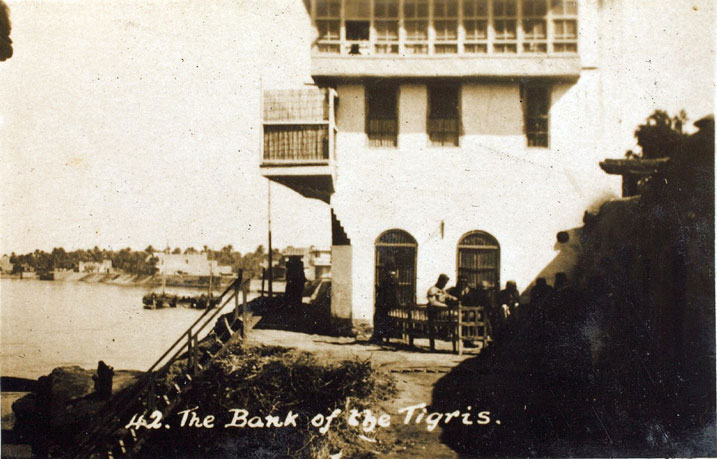The views expressed in our content reflect individual perspectives and do not represent the authoritative views of the Baha'i Faith.
O ye beloved, and ye handmaids of the Merciful! This is the day when the Day-Star of Truth rose over the horizon of life, and its glory spread, and its brightness shone out with such power that it clove the dense and high-piled clouds and mounted the skies of the world in all its splendour. Hence do ye witness a new stirring throughout all created things. – Abdu’l-Baha, Selections from the Writings of Abdu’l-Baha, p. 111.
Today Baha’is all over the world will celebrate the 9th Day of Ridvan, a festival of joy and unity.
The twelve-day period between April 21st and May 2nd marks the holiest and happiest Baha’i period of the year, called Ridvan (pronounced Rez-wahn). These dozen Baha’i Holy Days, which celebrate the beginnings of the Baha’i Faith in 1863, also recognize a period of great turmoil in Baha’i history and signify the transformation of suffering and oppression into joy.
Three of the twelve days of Ridvan have special significance–the first, ninth and final day, which fall respectively on April 21st, April 29th and May 2nd. Baha’is celebrate those days by abstaining from work and participating in joyous gatherings, observances, parties and picnics. These happy occasions, usually characterized by prayer and readings from the Baha’i writings, remind Baha’is that devotion to a noble cause dedicated to the service of humanity can bring great and lasting happiness.
For Baha’is, the Ninth Day of Ridvan honors a historic and profoundly symbolic event. In April of 1863 Baha’u’llah, previously exiled to Baghdad by the Shah of a hostile Persian government in 1852, learned that he had once again been officially banished from Baghdad to Constantinople (now known as Istanbul, Turkey), the capitol of the Ottoman Empire. At the time, both the Persian and the Ottoman governments opposed and feared the rapid spread of Baha’u’llah’s teachings and those of his predecessor The Bab. The Persian authorities reacted by unleashing a violent genocidal campaign of persecution, imprisonment, torture and execution against the followers of this progressive new Faith. Threatened by the Baha’i teachings and their rapid spread, which severely challenged the dogma and the dominion of the powerful Imams and Caliphs who ran the tyrannical governments, the rulers unleashed a vicious campaign of extermination against the Baha’is. At least 20,000 innocent people died as a result.
But this concerted campaign of exile and extermination failed to slow the spread of the new Faith, and the Ottoman government resolved to force Baha’u’llah and his family to prepare to leave Baghdad. After the order was issued, Baha’u’llah and a small number of followers moved temporarily to a beautiful, fragrant garden island near the eastern bank of the Tigris River. With four rose-lined avenues, the Garden of Ridvan—which means “paradise”–attracted hundreds of nightingales, singing enchantingly there every night. Springtime saw the Tigris flowing past powerfully, and the rushing river, the heavenly aroma of thousands of roses and the songs of the nightingales “created an atmosphere of beauty and enchantment.”
So on this day a hundred and fifty-two years ago–April 29, 1863–the ninth day of Baha’u’llah’s sojourn there, the flooding Tigris receded enough so that Baha’u’llah’s family could cross the river and join him in the Garden of Ridvan. This reunification of Baha’u’llah’s family, and by extension the unity of the entire human family the Baha’i Faith calls for, permeates the symbolic meaning of the 9th day of Ridvan.
Forty years later, the American attorney and writer Myron Phelps interviewed Baha’u’llah’s daughter, and she recounted her experience during that Ridvan period:
When the news (of Baha’u’llah’s exile from Baghdad) came to us, from which we inferred that my father would again be made a prisoner, we were thrown into consternation, fearing another separation. He was summoned before the magistrates… Great numbers of his followers had assembled before our house, and these witnessed his departure with many demonstrations of grief, feeling that it was possible he might not return.
The magistrates expressed great sorrow to my father; they said that they respected and loved him, that they had not instigated the order (which came from the Sultan of Turkey), but that they were powerless to suspend or modify it, and must proceed with its execution.
This report was like a death-knell to his followers, who were still gathered about the house. The next day they so overran the house that we could not prepare for the journey… Then, as the only way in which to soothe his followers, the Blessed Perfection (one of Baha’u’llah’s titles) took all his family to the (Ridvan) garden. Here we pitched our tents… The tents made, as it were, a little village… – Life and Teachings of Abbas Effendi, Myron Phelps, pp. 35-38.
Quite often, if you go to a Ninth Day of Ridvan celebration, you’ll find Baha’is celebrating with outdoor activities like picnics, games and hikes, enjoying the beauty of lakes, rivers and oceans as a reminder of Baha’u’llah’s momentous springtime declaration on the shores of the Tigris.


















Comments
Sign in or create an account
Continue with Facebookor